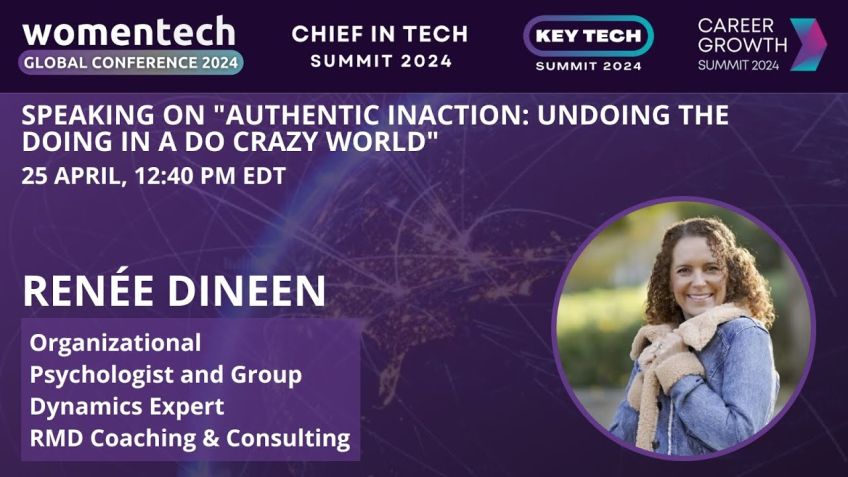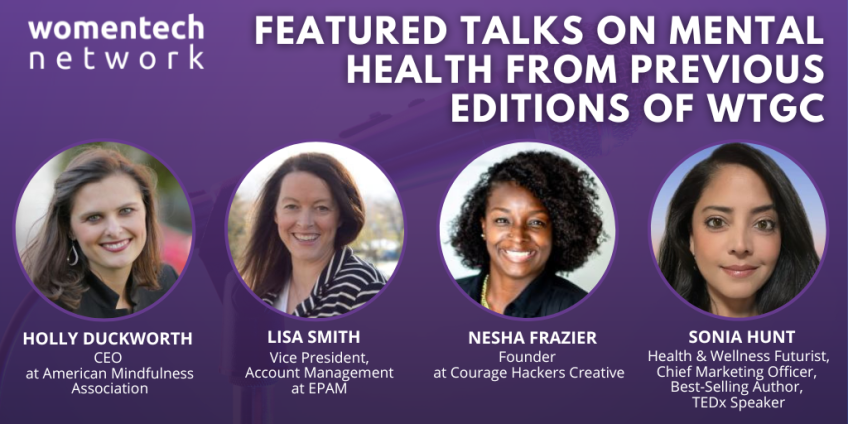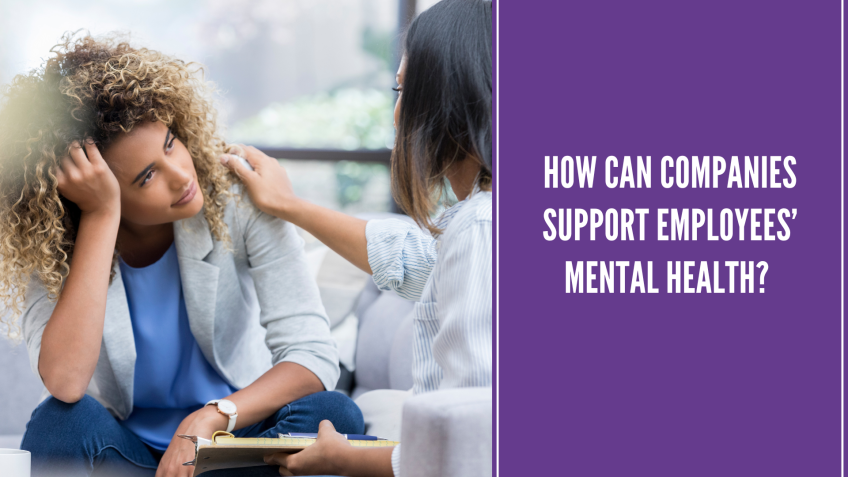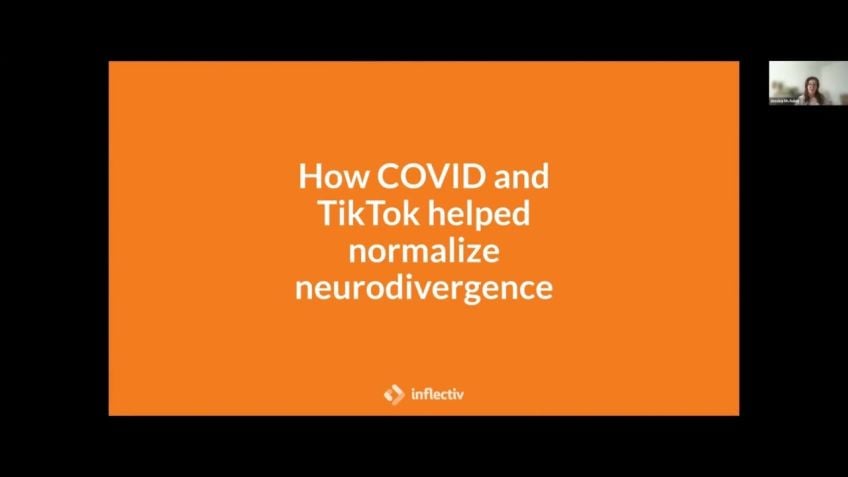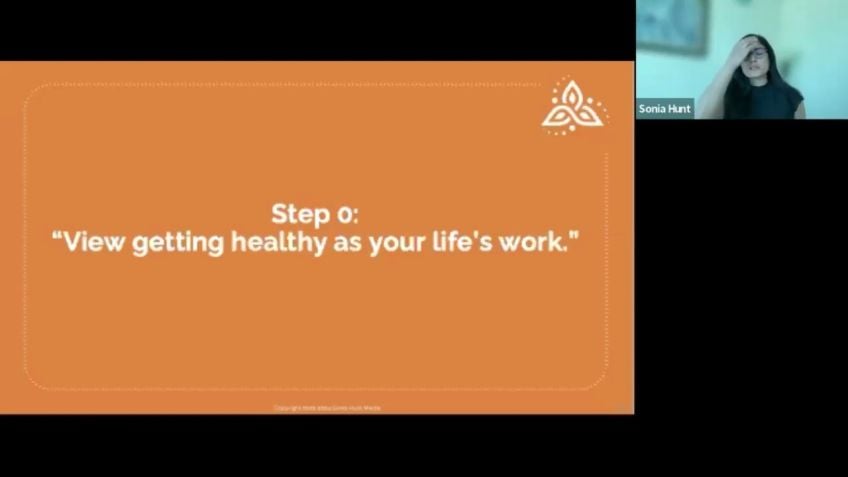Parneet Pal Transform Stress to Resilience: The Power of Social Connection
Transforming Stress into Resilience: Women in Tech's Innate Superpower
Good morning, afternoon, or evening, wherever in the world you're joining us from. Today, we find ourselves facing numerous crises causing a myriad of emotions from us. We, especially women in technology, might be feeling uncertainty, fear, and anxiety. Despite these, there is an innate superpower, a secret weapon that can help transform our stress into greater resilience. This article aims to give women different strategies to improve mental health and well-being amidst the crisis.
An Overview of Our Global Health Crisis
Currently, our global health situation is not in the best state. A staggering percentage of us are afflicted by lifestyle-related chronic diseases and mental health issues. Workplaces are seeing high burnout rates, and loneliness is steadily becoming the next significant health epidemic. Moreover, women in STEM fields often experience discrimination and isolation, causing half of them to stop working within their first ten years.
Managing Stress and Tapping into Social Connection
The key to managing our health and well-being is to pay attention to four aspects of our lifestyle: what we eat, how we move, the amount of sleep we get, and most importantly, how we manage our stress.
Gaining an understanding of stress will provide clarity on how to combat it. When faced with stressors, our brain automatically initiates a fight or flight response, and during these states, we tend to make poor decisions both personally and professionally. However, the human brain was also designed to respond to stress alternatively- through tending and befriending.
Understanding the Tend and Befriend Response
The tend and befriend stress response is a combination of three hormones. Oxytocin, the first hormone, makes us feel connected to the people around us increasing our trust, empathy, and collaboration. Dopamine, second hormone, reduces our levels of fear and increases motivation and energy to take action. Lastly, serotonin helps us tap into our creativity, providing us with our best ideas and solutions. In moments of stress, activating this response transforms our stress into resilience and allows us to boost creativity, productivity, and immunity.
How to Strengthen Social Connection
- Meditation: Regularly practicing meditation strengthens our attention networks, emotional regulation, and pro-sociality networks. It also makes us manage our feelings of fear and anxiety better and enables us to tap into our creativity.
- Building community: Forming social networks has a significant impact on transmitting emotional contagion. Kindness, happiness, and compassion can spread, leading to an overall sense of well-being.
- Being generous: Being able to give back, volunteer, mentor, or coach someone every day enables us to strengthen our brain's connectivity and overall well-being.
In Conclusion
As we face unprecedented challenges, it is imperative that, as women in technology, we choose to empower ourselves. Engaging the power of social connection can help us transform our stress into resilience, ultimately improving not only our health and well-being but also the health of our planet. Lets utilize these insights to bring about a positive change in our professional and personal lives.
Video Transcription
Hi, Ben.
Hi, Anna, how are you?
Good. A little bit tired but good. Super excited to meet you and we are looking forward to your talk. The stage is all yours.
Great. Thank you so much and good morning, good afternoon and good evening. Wherever in the world you might be joining us from, I'd like to start by sharing a few lines from a favorite poem of mine. This is poem is written by Warton Shire and it goes like this later that night, I held an Atlas on my lap, ran my fingers across the whole world and whispered, where does it hurt? It answered everywhere, everywhere, everywhere. Today as we come together as a community, as women in technology in this conference, I know that each one of us is probably feeling that hurt in our different ways. We might be feeling uncertainty, fear, anxiety as we try to grapple with all that's happening around us and all the crises that seem to be coming one after the other. But what if I told you that we have an innate superpower, a secret weapon that women are especially strongly wired for that you can bring online and that you can train to help transform your stress into greater resilience. This is what I'm going to be exploring in the next few minutes in my talk. And really my intention here is that you walk away with some strategies that you can use during this crisis to improve your mental health and well being.
But before we get into that, we need to take stock of where we are right now. And when we look at the state of our health and well being globally, it's not a pretty picture. Our health is in shambles. So three out of four of us in this conference today is going to suffer from a lifestyle related chronic disease in our lifetimes. That's things like diabetes and obesity and high blood pressure and cancer and heart disease, mood disorders like anxiety and depression and uh autoimmune disorders.
And when you look at our mental health, it's actually the worst that it's ever been. So rates of anxiety and depression are rising. There was a recent survey uh in the US that showed that now one third of Americans are reporting uh anxiety and depression up from 11% from just last year. And when you look at the workplace, more and more of us are getting burnt out. So, burnout rates are 40% or higher across professions. And for those of us who work in technology or as entrepreneurs, the rates tend to be even higher. 50% or higher. And suicide rates are at a 30 year high in the US. And I don't want to give an impression that all of this is just happening in the US. Unfortunately, these statistics uh run in parallel globally. And if all of that was not enough loneliness is now scheduled to be the next big health epidemic of our times. So there was a recent survey done by Cigna uh in the US. And when they polled Americans, they found that 61% of uh Americans reported feeding lonely. Um And if you think that loneliness is something that's only confined to people in their old age, uh you might want to think again because amongst those 61% 71% were millennials and 76% were gen Z and loneliness is often misunderstood.
Loneliness does not refer to the number of friends that you have. Uh It actually refers to the strength of your friendships or the strength of your relationships. It refers to the fact that when something important, good or bad happens in your life, do you have somebody in, in your circle of friends that you can openly share and talk to? And when we don't pay attention to this loneliness and when it increases, it has a huge impact on our mental health and well being. So it increases our risk for dementia, for depression, for heart disease. It lowers our immunity, which is of course, a huge risk factor right now in the time of COVID. But then in the workplace, if you're feeling lonely, it has a huge impact on your productivity. It decreases your engagement, uh it decreases your creativity. Uh It impacts your relationships that you have with your coworkers and your teams and you might not be able to collaborate as well as you want with them. Now, if all of this wasn't enough, all of us as women who work in stem, you know, the science, technology, engineering and math fields, we actually have the odds stacked up against us even more and I'm sure that you'll all find even in your own lives that we often end up working in teams or companies or organizations that might be dominated by men.
Uh These cultures often tend to be very competitive and in some cases can also be very aggressive or hostile. And uh it's not uncommon for us to often feel discriminated against or maybe even more and more isolated. It's no wonder that 50% of us in stem drop out as women in the 1st 10 years of our working lives. All right. So now that I've said that gloomy picture for you, the question then becomes, what are we as women in technology to do if we want to have impact in the world? If we want to show up with more purpose and meaning in our lives and make a difference, how can we make sure that we also take care of our health and well being. Well, I have good news and I have even more good news. So the first piece of good news is that 80 to 90% of all of those uh dreaded lifestyle related chronic diseases that I mentioned before. 80 to 90% of those are completely preventable. When we pay attention to just four aspects of our lifestyle, what we eat, how we move, how much we sleep, or perhaps most importantly, how we manage our stress.
And the second piece of good news that I want to share is that as women, we are naturally wired for this innate superpower that we can bring online whenever we feel stressed. And that superpower is the power of social connection. So I'm sure you're all wondering that all sounds good pee, but how can I use social connection to improve my stress? So in order to understand that, and I want to make this very practical for all of you. So what I want you to do right now is just bring to mind something in your life that's causing you stress. So just bring to mind whether it's a person or a situation that's causing you stress. And as you bring that to mind, know that what's happening in your brain and body is that it's automatically mounting what's called the fight of light stress response. And I'm sure a lot of you are familiar with this. It's that feeling you get, when you're stressed, when your heart rate goes up, your breathing becomes fast and shallow, your muscles stands up and basically your brain and body is getting ready to fight or flee. And this is an important, uh, um, response to stress and a reaction to stress for survival. Right?
So, if you're walking down the road and there's a car coming at you, you want to be able to fight or flee in that situation so that you can save your life. But unfortunately, our brains can't tell the difference between an oncoming car and an angry email or what somebody um says to us in a team meeting or when we hear all of the news uh in our media or when somebody makes a comment on social media uh on our post. So all of these things um come together and what ends up happening is that we are walking around in these states of chronic stress and in the state of fight of flight. Now, here's the most important thing in this state of fight or flight. From our brain's perspective, our vision literally narrows. So we develop this kind of tunnel vision. It's all about survival in that moment. But what this also means is that in those states, we do not have access in our brain to our best ideas and insights and our creativity.
The other thing that happens is that we become very self-focused. So it's all about me and all about survival in that moment, which means that we become selfish. This is not a time during fight or flight for trust and for collaboration. Uh And we forget about the well being of the people around us. And so what ends up happening is that we make really poor decisions. If we stay in the state of fight or flight, we make really poor decisions, so bad decisions when it comes to our lifestyle, right? So we eat the foods that we shouldn't be eating. We don't sleep well, we don't work out. Um We get, we use distractions like technology or social media to numb our difficult emotions, like anxiety and fear. But then we also end up making really bad decisions for our businesses uh and for our planet. And we can all see the ramifications in the news of how being in the state of Fight of flight. Uh the impact that it's had on both our political and our social health. But now for the secret evolution did not design our bodies and brains only with fight or flight as a response to stress. We were also designed with an alternate response to stress.
And in order to understand this alternate response, I want you to think back hundreds of thousands of years ago when we were living as hunters and gatherers out in the wild. And I want you to imagine if you were a mother with a small child out in the wild. And if there was a tiger coming uh to attack you in that moment, if the mother only had fight or flight available to her, what would she do? She would run, right. Like she would run to save her own life and the poor child uh would not survive. And obviously, this would not be good uh for our species to continue. And so our brain and body then had to come up with an innovative new system that would override in a moment of stress. It would override the fight of flight, uh stress response. And this system also had to make sure that it motivated the mother uh to take action. It had to make sure that the mother felt enough of a bond and connection and care and love for her child to take um the step. And it also meant that she had to come up with really good ideas in that moment of how she would be able to protect her child. And the beauty is that that's exactly what happened.
And what we developed in our brain and body is this alternate response to stress, which has been called the tend and befriend, stress response, tend and befriend stress response. And when, when we engage in this alternate response to stress, uh we bring three hormones and neurotransmitters online.
It's really quite fascinating. So the first hormone that we, that starts getting produced in, in our body when we engage in this response is Oxytocin. Uh And I'm sure you've all heard of Oxytocin, it's known as the cuddle hormone or the love hormone. But Oxytocin does so much more than that. Uh when levels of Oxytocin rise in our body, it makes us feel really caring, nurturing and connected to the people that we're interacting with. But in teams, what this means is that it increases our levels of trust and empathy and collaboration. And what's not well known is that Oxytocin is actually a very powerful anti stress hormone. So when those levels rise, we find, you know, we tend to relax our stress levels go down. So that's the first thing Oxytocin levels rise. We feel connected to the people that we're engaging with. The second hormone that a neurotransmitter that gets increased in our body is dopamine and dopamine is a hormone that helps to reduce our levels of fear. So it makes you brave, it makes you fearless, but it also makes you motivated. It increases your drive and energy to take action. And the third hormone in the body uh that gets produced is serotonin and serotonin really helps us to attune our insights. It helps us to tap into our creativity and come up with best ideas and solutions.
So these three hormones, Oxytocin, dopamine and serotonin come online to help us in this moment of stress so that we can tend and be friend and the way to do that, the way to engage this response, the next time you're feeling stressed is basically to do one of two things. We either reach out and ask for help or even if we are feeling stressed, we turn the lens away from us and go out and help somebody else. And when we do this, when we reach out and connect to others socially, when we reach out and help others in a moment of stress, something wonderful happens in the body. All of those hormones come into play and it activates our parasympathetic nervous system, which is a complete opposite of the fight of flight. So what this means is that as you engage in those activities, your heart rate goes down, your breathing slows down your muscles, relax, your blood pressure goes down, your immunity improves and inflammation in your body goes down, which means that you're less likely to develop all of those uh lifestyle related chronic diseases that I spoke about.
But then as teams and in organizations and workplaces that have this kind of culture of helping and belonging and social connection and compassion, uh what the studies show is that these are the cultures and workplaces and businesses that are the most innovative. They have lower turnover, uh they are very productive, they have really high levels of customer service. So as we start to think about how you can engage and bring this um attend and befriend uh stress response. Uh more and more online, how you can strengthen this. And as women, we you know, this response is present in men as well. But as women, we are just, it just comes easier to us. We are more naturally inclined to care and connect and bring this response online. So there are three ways that we can strengthen this capacity. And the first is to strengthen our brain networks for social connection. And the easiest way to do that. 25 years of research has shown that when we meditate 5, 1015, 20 minutes or more every single day, we strengthen our attention networks, our emotional regulation networks and our pro sociality networks in the brain. And all of that is just a fancy way of saying that when we practice 5, 1015 minutes a day, we become the person who in a moment of chaos, even if there's a lot of chaos and stress around us, we become the person who on demand can stay calm, stay focused, we can tap into our creativity, come up with the best ideas and be productive in that situation.
It means that we become the person who can navigate our feelings of anxiety, of fear in ways that are useful to us means that we develop our capacity to be kind to be generous, to be empathic, to be compassionate and to give back to others. Um So I hope one of your takeaways from this is that you will all start to see how you can incorporate meditation. You know, there are many apps that you can use at wisdom labs. We have the wise it work app that's available for free. So go ahead and try this out and experiment and start to see how you can strengthen these brain networks and improve your ability to respond to stress. Now, the second way that you can engage the power of social connection and your tend and befriend response is simply to build community. And when you build community, just like we're doing right now with the women tech network is um it, it helps to uh give you all the benefits that we just mentioned um of the stress response. But a very important thing happens in social networks and that is they have a huge power of um transmitting emotional contagion.
So even though fear and anxiety networks, similarly, kindness and happiness and compassion can also spread in networks and that's really powerful because if I see Anna being kind to someone, it's more likely that I will then go out and be kind to somebody else and that will spread to three degrees of separation.
So not just me, but my friend and my friend's friend and my friend's friend's friend is also more likely to be kind um to, to the next person. And then finally, the third piece right now, you're being
kind and we are having such an impact also streaming on our social media. And this kindness is spreading all over.
I love that. Yes, absolutely. I mean, I mean, Anna, but you like by creating this network already, everybody who's joined this conference has engaged the power of social connection and is already trans forming their stress to resilience. And then the final thing is really just to be generous is to give back, find a way to volunteer to mentor, to coach somebody to engage in a random act of kindness every day. And this will again help to strengthen your brain networks. So I'll just close by saying that, you know, we are at a very crucial inflection point in our history right now. We are facing these amazing challenges to uh our humanity and as women in technology, as product managers, as coders, as investors and entrepreneurs, we have uh a choice to make. We can either face our stress in the old way with fight or flight and uh risk our health and the health of our planet becoming just another statistic or we can choose the alternate response in a moment of stress. We can engage the power of social connection and this will help us to transform our stress to resilience. So thank you so much, Anna for inviting me and thank you so much for your attention, everyone.
Thank you very
much for this, very interesting, inspiring and insightful talk. Thank you very much, Bernie and have a great day. It was a pleasure to have you with us. Thank
you. Anna take care.

